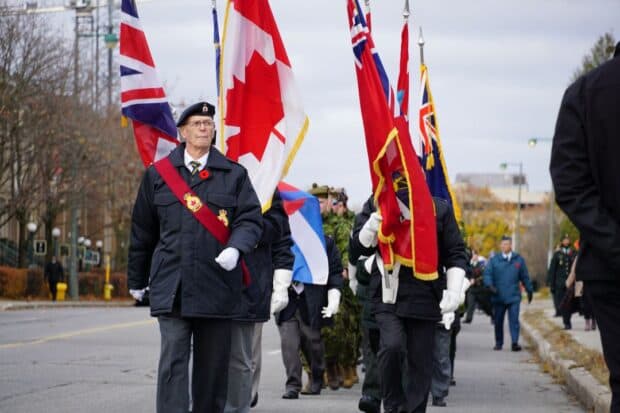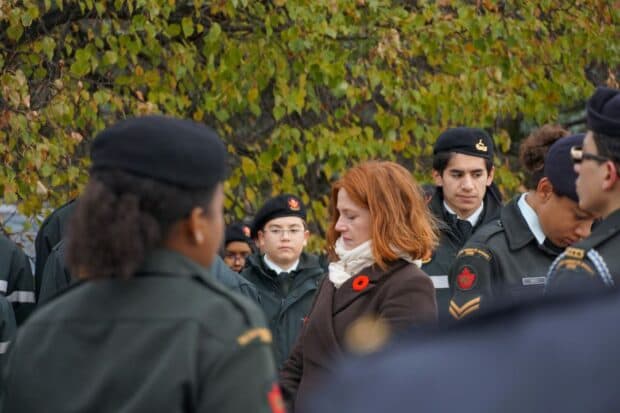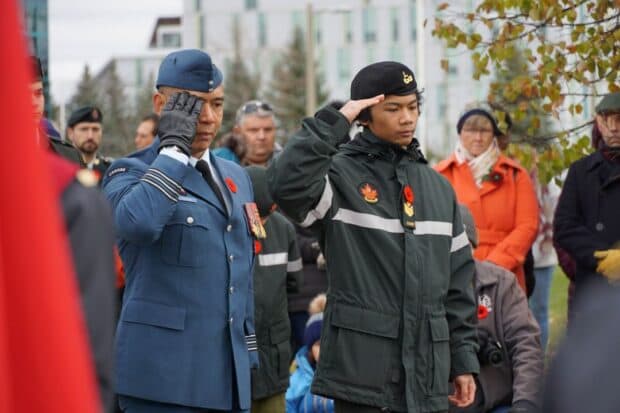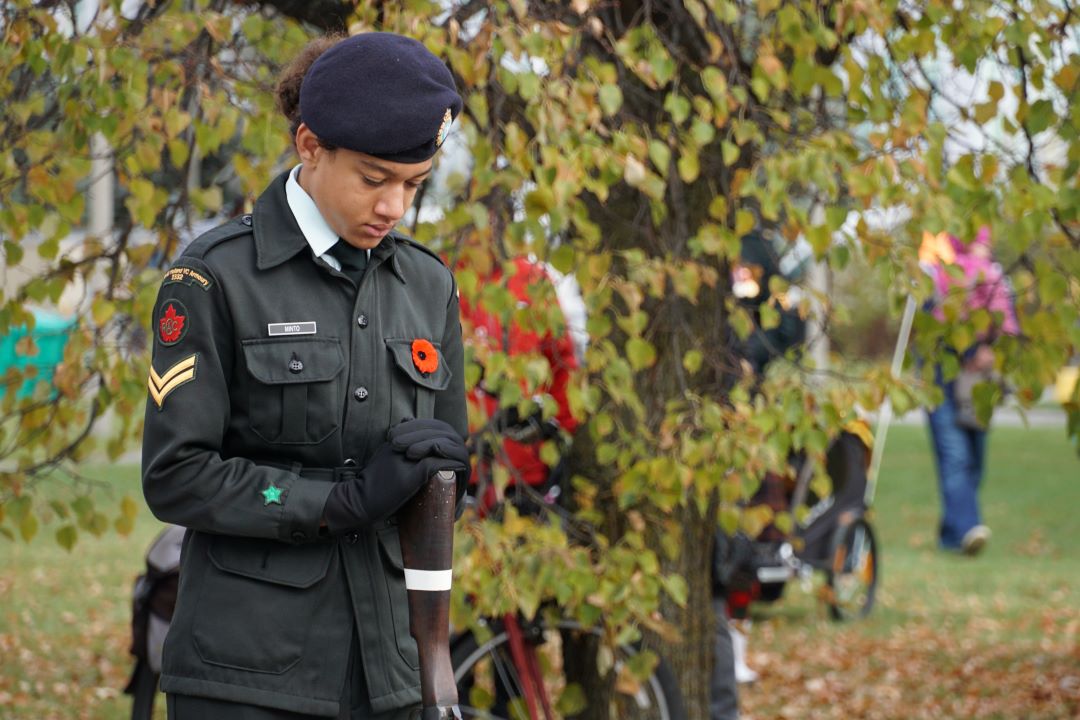Over 100 people gathered on Nov. 11 at the Nepean Cenotaph for Remembrance Day. The ceremony, hosted by the Royal Canadian Legion, marked 105 years since the end of the First World War, recognizing the bravery and sacrifice of soldiers who gave their lives to protect their country.
“As a serving member of the force and a fourth-generation service member, Remembrance Day is not just about remembering the fallen,” said Cpl. Scott Chesterman, a member of the 450 Tactical Helicopter Squadron.
“It’s about remembering those that are still with us, you know, those that just gave an arm or a leg, or a limb, or even just their sanity, so that we could be safe here and endure a little bit of cold. So that we can remember them.”
The ceremony started with a parade march of various groups towards the cenotaph, including members from the 19th Nepean Cub and Scouts, Royal Canadian Army cadets, as well as Canadian Armed Forces members.

The parade was followed by some technical difficulties with the speaker system while attempting to play the national anthem. However, in good Canadian spirits, the audience quickly began to proudly sing O’Canada without any accompaniment. The anthem was followed by a moment of silence at 11 a.m., marking the anniversary of the signature of the armistice in 1918 and the end of the First World War.
Despite being held in College ward, Algonquin College did not participate in the ceremony.
“I’m very disappointed. This is the second year in a row that we’ve had no one from the Students’ Association or the college attend,” says Brad Curtis, a former serviceman and executive member of the 593 Royal Canadian Legion branch.
According to the college, president Claude Brulé received an invitation but was unable to attend.
“President Brulé received an invitation to attend Branch 593’s Remembrance Day ceremony but was unable to participate due to illness,” said Trevor Oattes, a communications officer for Algonquin College, in an email. “We sent our regrets to the branch and noted that President Brulé would have been honoured to attend had he been able.”
The ceremony saw the attendance of numerous guests, including the president of the 593 Royal Canadian Legion branch, Shawn Taillon, and College ward city councillor Laine Johnson.

“I think it means something a little closer to home this year because my 96-year-old grandfather is in the hospital right now in Weyland, Ont.,” said Johnson. “So I’m thinking a lot about him and the lifetime he’s seen and just thinking about what he’s witnessed growing up, raising a family and the wars he’s seen.”
The ceremony was followed by the placement of wreaths at the base of the cenotaph, each wreath recognizing a difficult time in history, as well as organizations that have supported soldiers and veterans. After the placements of the wreaths, the ceremony came to a close with a recital of the poem “In Flanders Fields.”

“Remembrance Day is an important day,” said Chesterman, “not everyone thinks so, but it is. It’s an important day to remember.”


